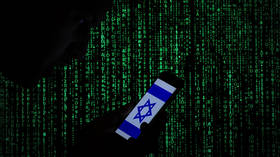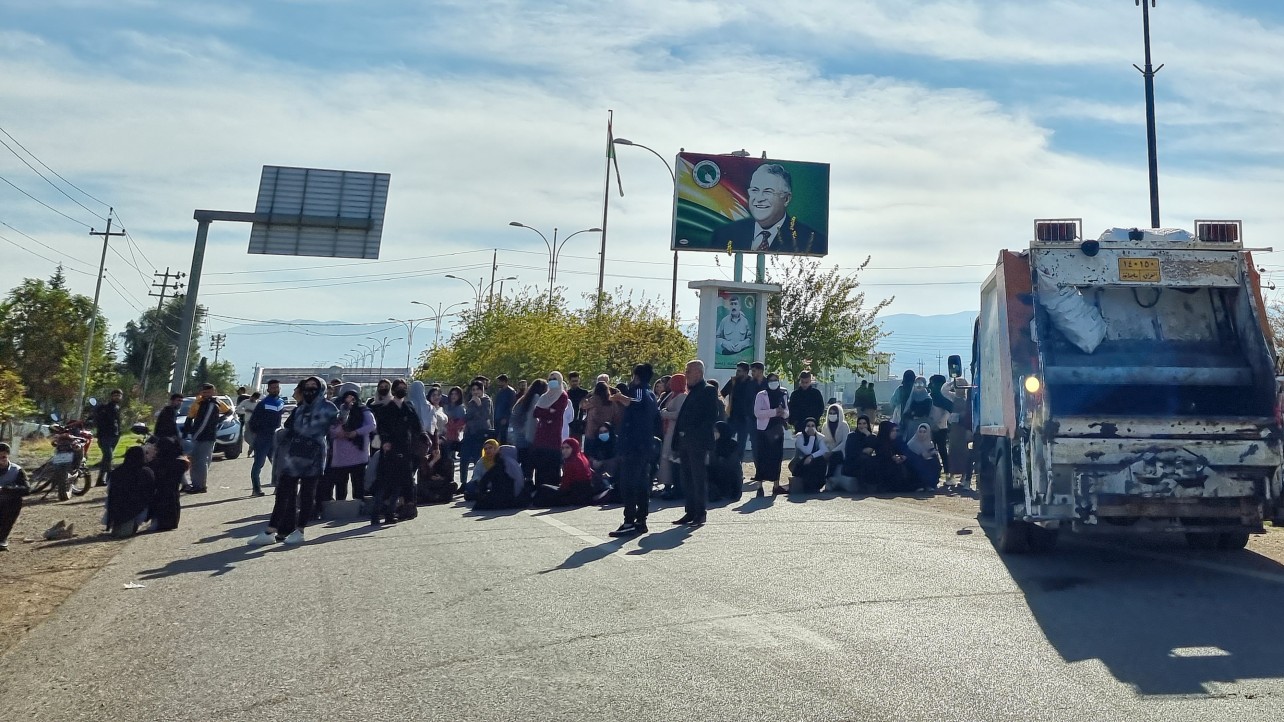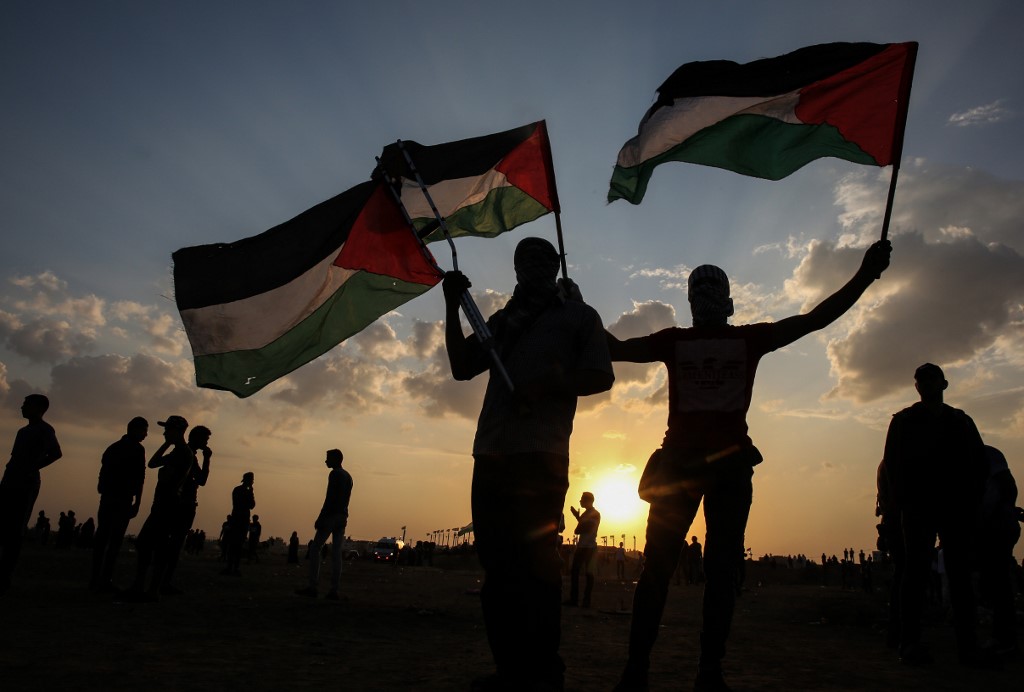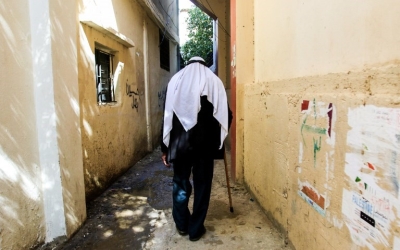‘These people have really come to support us’: Leaked audio reveals white supremacists’ partnership with prominent anti-abortion movement
An antifascist group infiltrated Patriot Front and leaked its meeting.
Audio reportedly leaked from a recent Patriot Front meeting reveals the white nationalist group’s inner workings. During the meeting, Patriot Front’s purported founder also claimed that they’ve garnered support from people who attend events by the anti-choice group March for Life
Patriot Front is a far-right racist group led by Thomas Rousseau, a man in his early twenties with a fondness for cowboy hats and rules.
The audio reveals how organized and image-conscious the group is. It demonstrates that it endeavors to hide its extremism and racism to attract new members and broaden its appeal even as top leadership approves its racist acts. If what Patriot Front says on the leaked audio is true, these methods are successful.
Atlanta Antifascists, which posted the leaked footage, said, “Patriot Front’s leader approves its racist vandalism from the top.”
In a direct message to the Daily Dot sent via Twitter, Atlanta Antifascists characterized the meeting as “an excruciating 50 minutes from the most micro-managerial white power group in the [United States].”
Patriot Front splintered from the ideologically similar American Vanguard after the man who murdered Heather Heyer was seen carrying an American Vanguard shield at the deadly Unite the Right rally in 2017, the Anti-Defamation League reports.
In 2019, ProPublica described Patriot Front as among the most active white supremacist groups in America. At the time, the group had an estimated 300 active members, ProPublica reported.
It’s not clear how many members Patriot Front currently has. More than 100 marched in Washington, D.C. earlier this month carrying banners reading “reclaim America” and “life, liberty, victory,” both slogans which appear on its website. Its Telegram channel has 15,000 subscribers.
Patriot Front is mostly known for spreading propaganda, demonstrating, and defacing anti-racist murals and displays. However, some members, including Rousseau, have been arrested on charges ranging from assaulting a police officer to vandalism
The group lays out its mission in a lengthy manifesto. It claims that America is run by tyrants and implies civil war is the only solution. “Democracy has failed this once great nation,” it states. “The resurgence of the American Spirit will bring with it the death of tyranny. The torch of revolution has been lit.” Its racist overtones are plain. “When our pre-Columbian forefathers left their European homes, they found a savage continent.”
Later, it reads, “To be an American is to be a descendant of conquerors, pioneers, visionaries, and explorers. This unique identity was given to us by our ancestors, and this national spirit remains firmly rooted in our blood.”
A previous version of the manifesto was more overtly racist. The Southern Poverty Law Center reports that it stated, “An African may have lived, worked, and even been classed as a citizen in America for centuries, yet he is not American.”
The leaked audio, first posted by Atlanta Antifascists, is reportedly from Patriot Front’s Dec. 10 meeting. The group claims that Patriot Front has been infiltrated. Atlanta Antifascist wrote that the meeting audio was “brought to you by the antifascists in your chat.”
brought to you by theantifascists in your chat:Patriot Failurehttps://t.co/cNDp4ERoBI— Atlanta Antifascists (@afainatl)December 11, 2021ement
Patriot Front didn’t respond to a request to verify the audio’s authenticity sent on Monday via a form on its website for new members to sign up. It also hasn’t posted about being infiltrated on its social media channels.
The meeting was run by Rousseau or someone with an identical, distinctive voice. They talked about the recent march in Washington, D.C., plans for 2022, vetting new members, and being careful about their data and public acts.
Patriot Front has a reputation for being more image-conscious than other extremist groups. To appear more palatable, it attempts to somewhat mask its racism and antisemitism. Accordingly, it’s more strategic about group actions and insistent on maintaining the chain of command.
When someone said a racial slur and others laughingly repeated “N-word” during the meeting, the person who’s presumably Rousseau admonished them, “Do not break the discussion conduct guide. Exercise proper conduct at all times.
Not using racial slurs—in public, at least—is part of its strategy to be more acceptable.
Per the meeting, Rousseau and his top lieutenants give advanced approval of its racist acts of vandalism, one of Patriot Front’s preferred methods of spreading its message.
“When it comes to large scale mural coverups make sure you are always consulting a director for something like that or you are consulting me,” the man who’s presumably Rousseau said.
“… As the activism becomes higher in risk or scale, the more you need to get consultation. Things like billboards, big murals, you want to be careful, you want to run it by me.”
It’s Going Down, which serves as an online community center for various antifascist, anarchist, and anti-capitalist groups in the United States, characterized the leaked audio as both revealing and alarming.
“Patriot Front actions, such as the recent targeting of a Hmong Cultural Center in St. Paul; the George Floyd statue in New York; and Pride Centers, synagogues, and Black Lives Matter murals across the US, show that while the group presents itself as orderly and law abiding, its actions pull directly from the KKK playbook,” It’s Going Down told the Daily Dot via Twitter direct message.
When a Hmong center in Minnesota was defaced in September, local outlets report that the vandals had painted slogans associated with Patriot Front. Also in September, Essence reported that Patriot Front defaced Black Lives Matter murals in Michigan. Last June, the New York Times reported that a statue of George Floyd was graffitied with a symbol associated with the group. And in 2019, the Burlington Free Press reported that a gay pride center and synagogue in Vermont were plastered with posters linked to Patriot Front, quoting sources who described it as a “white nationalist hate group.”
During the meeting, members were instructed to delete all electronic records, such as chats and photos, of their recent march in Washington, D.C. to make sure “there is no digital footprint.” This is an apparent preventive measure to protect their identities and mask their true purpose and beliefs. They were told that the group had enough materials to create posters and other materials, but to send anything that might be helpful before they deleted it.
They further characterized the march as a success in terms of getting its message out to potential sympathizers.
The march was widely derided online, and not just for Patriot Front’s racism and its message to “reclaim America.” Many viewed masked men marching around in khaki pants and blue tops as rather ridiculous.
A viral video described their matching outfits, masks, and shields as “Ku Klux Klan bitch but it’s at Best Buy.”
Getting our outfits ready for the function at the Lincoln Memorial https://t.co/u45IuAOH2t pic.twitter.com/6BCdrIaMmr— Vinny Thomas (@vinn_ayy)December 5, 2021
It’s Going Down said that the audio contradicts claims made by conservatives that the march was actually conducted by federal officials masquerading as extremists. People on the right, including powerful politicians, have falsely claimed that the feds were behind acts such as this and the Capitol riot.
“While a large section of the Right has attempted to paint Patriot Front as ‘feds,’ following their recent debacle of a rally in D.C., in reality they represent one of the largest white nationalist groups in the U.S.; that like the Groypers led by Nick Fuentes, who has been embraced by several Republicans, are keen to push and influence the MAGA movement into an increasingly fascist trajectory,” It’s Going Down said.
Hierarchy and adherence to Patriot Front’s rules and standards were discussed extensively at the meeting.
According to their discussion, the group is organized into territories, each with directors who report to Rousseau. There are also “scribes,” a “quarter master,” and one person who serves in the dual roles of interview and photo coordinator who’s in charge of vetting recruits and capturing images for posters and other marketing materials, respectively. Another member creates what they refer to as “propaganda videos.”
As a means of safeguarding their identities, even on a call that’s supposedly only for members, each was referred to by a first name (all were male) and state of origin, for example “John Utah” and “Walter Idaho.”
Atlanta Antifascists isn’t convinced that Patriot Front’s efforts to conceal its true purpose and members’ identities are effective. “Despite Thomas Rousseau’s assurances that all security issues have been taken care of… well, LMAO,” it told the Daily Dot.
On multiple occasions, the man who is reportedly Rousseau scolded members for leaving their microphones on, telling jokes, or failing to clap at the proper interval for the appropriate length of time.
Let's review some key points from Patriot Front's latest private meeting, shall we?
It sounds like they experienced some disruptions at their D.C. march last weekend,
causing them to postpone their awards ceremony.
Also, Thomas has pretty strict rules about clapping. pic.twitter.com/2s78g10skB—
Front Range Antifascists (@FrontRangeAFA)
During another portion of the meeting, he claimed that the group’s visibility is on the rise. He said hundreds have recently applied to join.
One of the first items on its 2022 agenda, according to the meeting, is the annual March for Life on the anniversary of Roe v. Wade next month. Patriot Front has purportedly been participating in these anti-choice events for several years. Its Odysee platform includes a video from one such event.
The individual who’s presumably Rousseau indicated that they’re welcome at the March for Life.
“These people at the March for Life events have really come to support us over the years and because of the last year’s cancellations of these events, we are expecting even larger crowds of supportive individuals,” he said.
It’s Going Down characterized an alliance between March for Life and Patriot Front as “concerning,” though not particularly surprising.
March for Life didn’t respond to a request for comment sent via direct message on Twitter Monday afternoon.
“With attacks on reproductive freedom and health ramping up across the U.S., this shows that not only is misogyny and patriarchy a core feature within fascism, but also that seemingly conservative forces are finding common cause with street-level white supremacist groups with long histories of violence and targeted attacks,” It’s Going Down told the Daily Dot.
In spite of Patriot Front’s efforts to disguise their beliefs and identities alike, the leaked audio offers clues about how the group operates and what it really believes.
“The best info to glean from this call is the hierarchy and discipline of Patriot Front members, the overt racism, and the willingness to work with more mainstream right-wing groups from which Patriot Front can recruit.”

















 Palestinian protesters wave their national flag in Gaza in October 2019 (AFP)
Palestinian protesters wave their national flag in Gaza in October 2019 (AFP)
